Photos reveal scale of devastation after deadly Israeli airstrike on Gaza refugee camp
The Israel Defence Forces admitted carrying out the strikes saying it targeted Hamas infrastructure
Your support helps us to tell the story
From reproductive rights to climate change to Big Tech, The Independent is on the ground when the story is developing. Whether it's investigating the financials of Elon Musk's pro-Trump PAC or producing our latest documentary, 'The A Word', which shines a light on the American women fighting for reproductive rights, we know how important it is to parse out the facts from the messaging.
At such a critical moment in US history, we need reporters on the ground. Your donation allows us to keep sending journalists to speak to both sides of the story.
The Independent is trusted by Americans across the entire political spectrum. And unlike many other quality news outlets, we choose not to lock Americans out of our reporting and analysis with paywalls. We believe quality journalism should be available to everyone, paid for by those who can afford it.
Your support makes all the difference.More than 50 Palestinians have been killed and over 150 wounded in Israeli airstrikes on the Jabaliya refugee camp in northern Gaza, the director of Gaza’s Indonesian Hospital has said. He told Al Jazeera he feared the numbers would rise after several residential buildings were destroyed in the bombardment.
The Israel Defence Forces admitted carrying out the strikes saying it had targeted Hamas infrastructure “that had taken over civilian buildings” but claimed those killed were Hamas militants.
Hamas spokesperson Hazem Qassem denied the IDF’s claim, saying it was trying to justify “its heinous crime” against civilians.
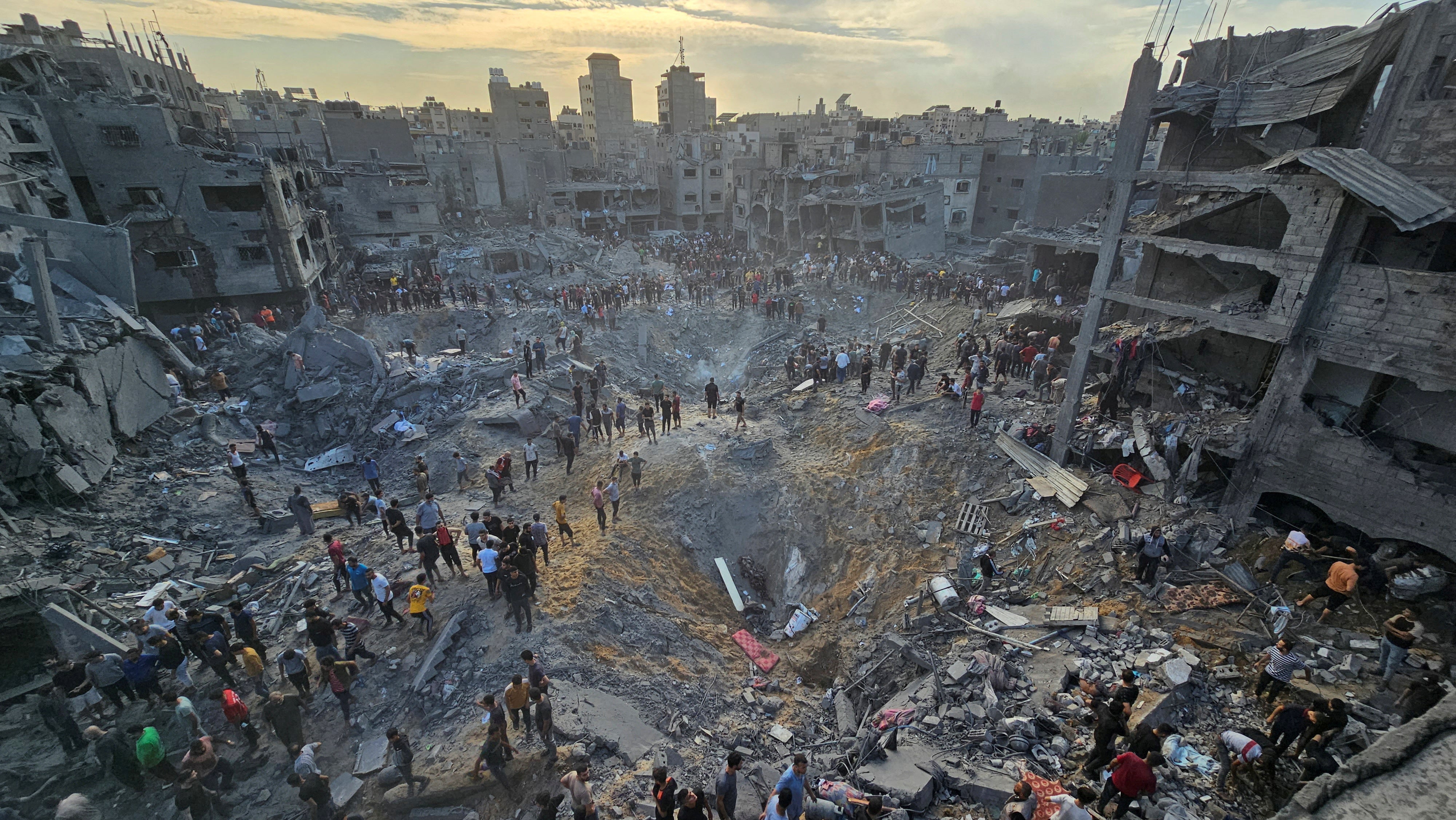
The blast comes as the Palestinian border authority said late on Tuesday that the Rafah crossing will be opened on Wednesday to allow 81 severely injured Palestinians to be treated in Egyptian hospitals.
Photographs from the scene show the devastation caused by the attack with civilians digging through rubble to recover the dead and wounded.
Mohammed Hawajreh, a nurse with Doctors Without Borders, told The Independent: “Young children arrived at the hospital with deep wounds and severe burns.
“They came without their families. Many were screaming and asking for their parents. I stayed with them until we could find a place, as the hospital was full with patients.”
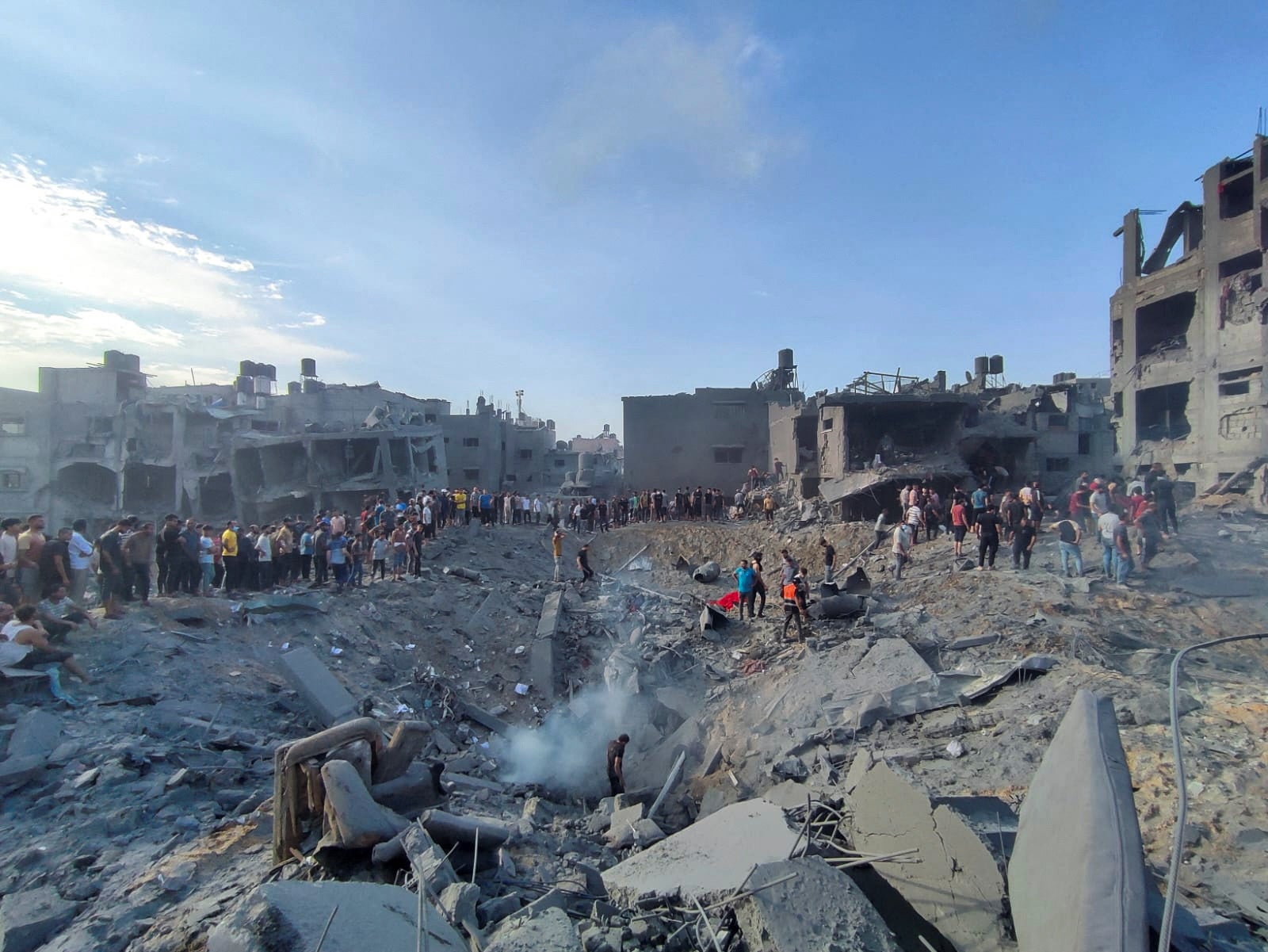
In a statement late on Tuesday night, the Ministry of Health in Gaza warned that the Shifa Medical Complex and the Indonesian Hospital, which are treating the wounded from the Jabaliya strike, were hours away from shutting down as fuel runs out.
It said: “We send a distress call to countries around the world to save 42 children under life support in incubators, 62 wounded and patients under artificial respiration, 650 patients with kidney failure, hundreds of operations in operating rooms, and other patients and wounded.
“We appeal to all gas station owners and our people who have any quantity of fuel or know a place with fuel to supply it to al-Shifa Medical Complex and Indonesian Hospital to save the lives of the wounded and sick.”
As the battle inside Palestinian territory intensifies, Israeli prime minister Benjamin Netanyahu has dismissed international calls for a halt to the fighting, which has been raging since Hamas launched attacks on 7 October, killing 1,400 people, according to Israeli authorities.
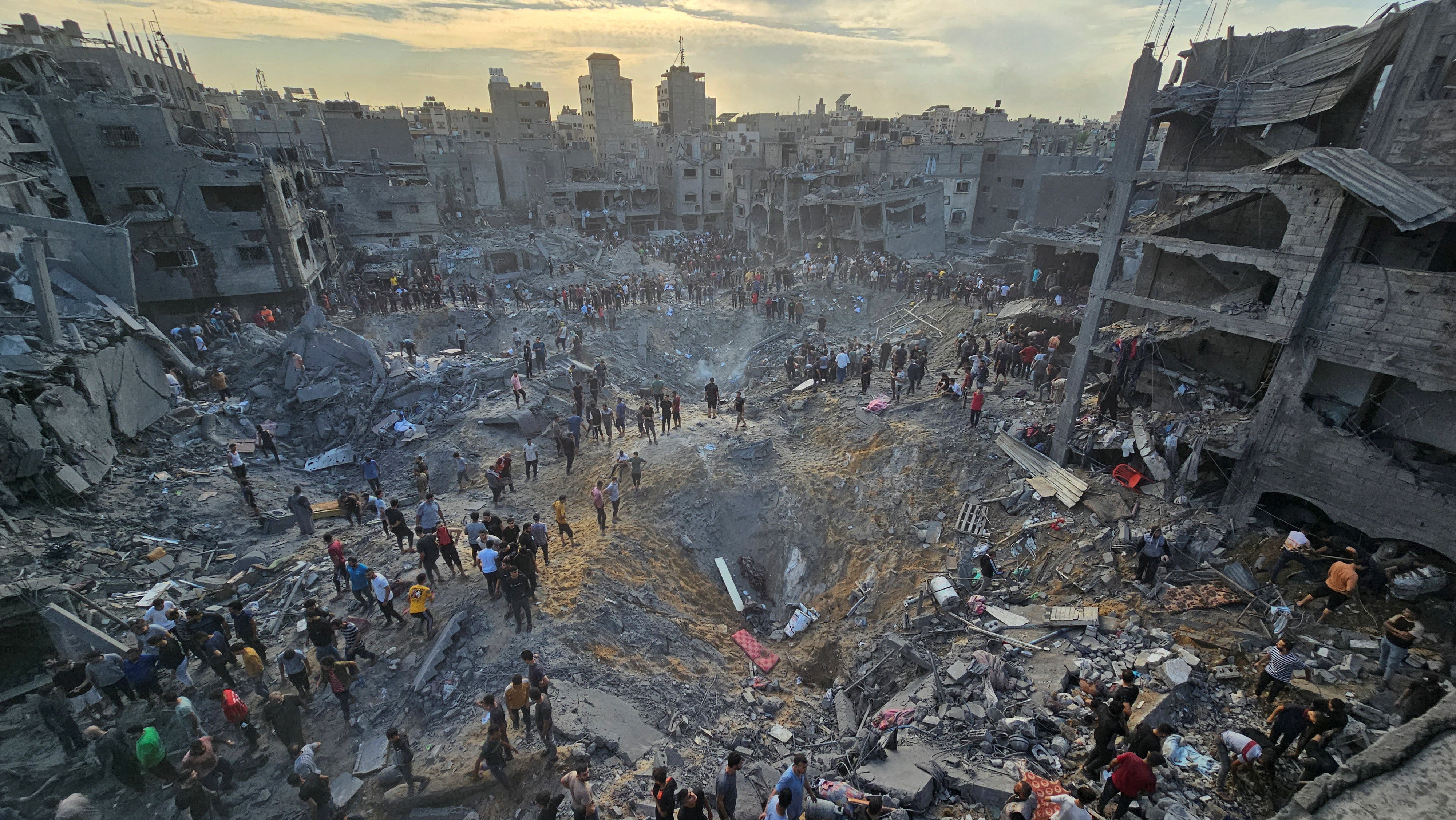
The Palestinian Ministry of Health reports 8,525 people have been killed, including 3,542 children, in what charity Save the Children says has surpassed the number of children killed in all conflicts since 2019. Almost 1,000 children are missing, according to the charity.
The rapidly mounting death toll has drawn calls from the international community, including the US – Israel’s biggest ally, for a pause to the fighting to allow humanitarian aid through.
Israel has sealed off Gaza and refuses to allow in food, fuel and medical supplies least, it says, they be used by Hamas to wage war.
The US secretary of state Antony Blinken, speaking in Washington, stressed the importance of both security assistance for Israel and humanitarian aid for Palestinians in Gaza.
“Without swift and sustained humanitarian relief, the conflict is much more likely to spread, suffering will grow, and Hamas and its sponsors will benefit by fashioning themselves as the saviours of the very desperation they created,” he said.
A World Health Organisation official said that “a public health catastrophe” is imminent in Gaza.
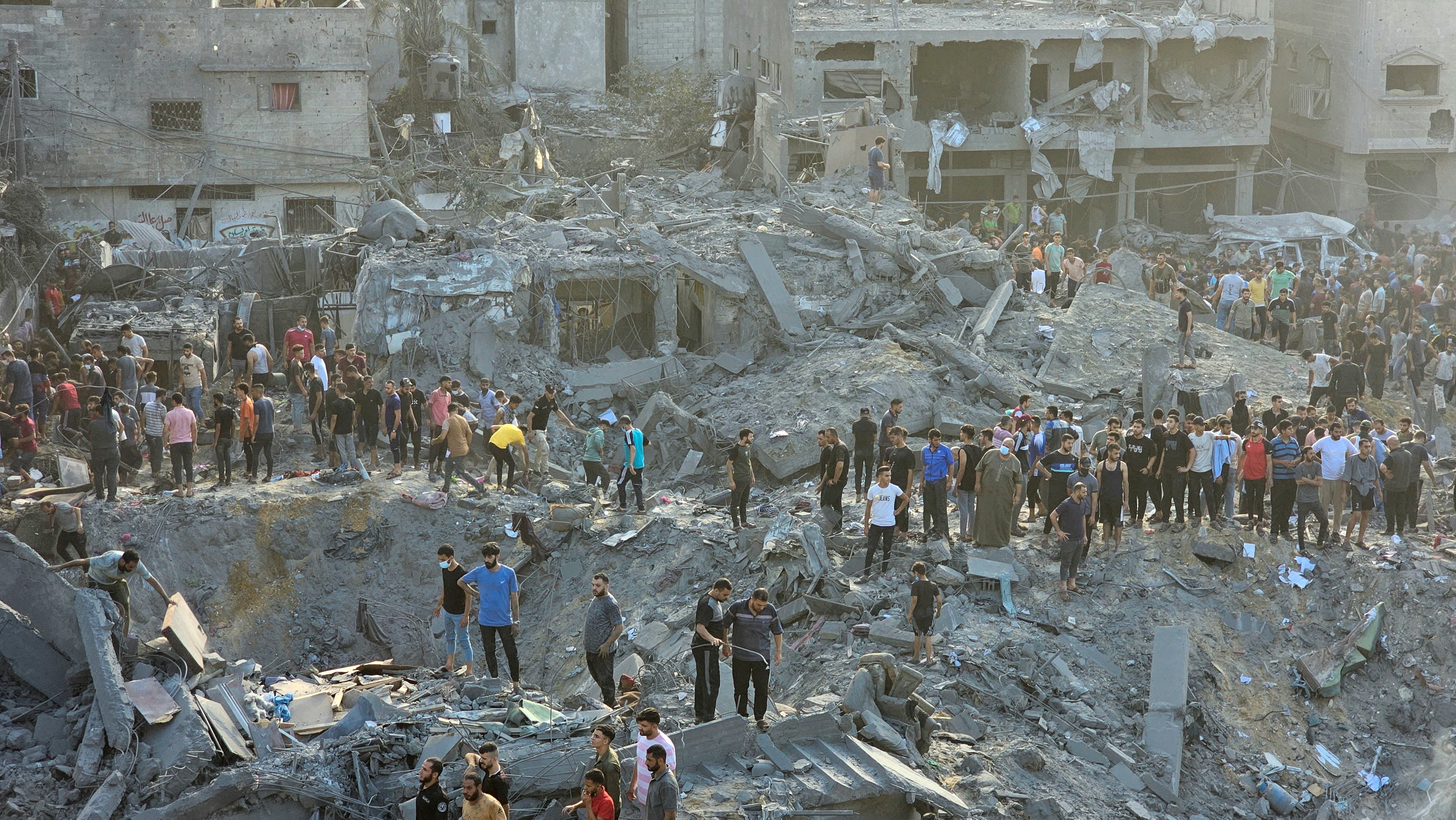
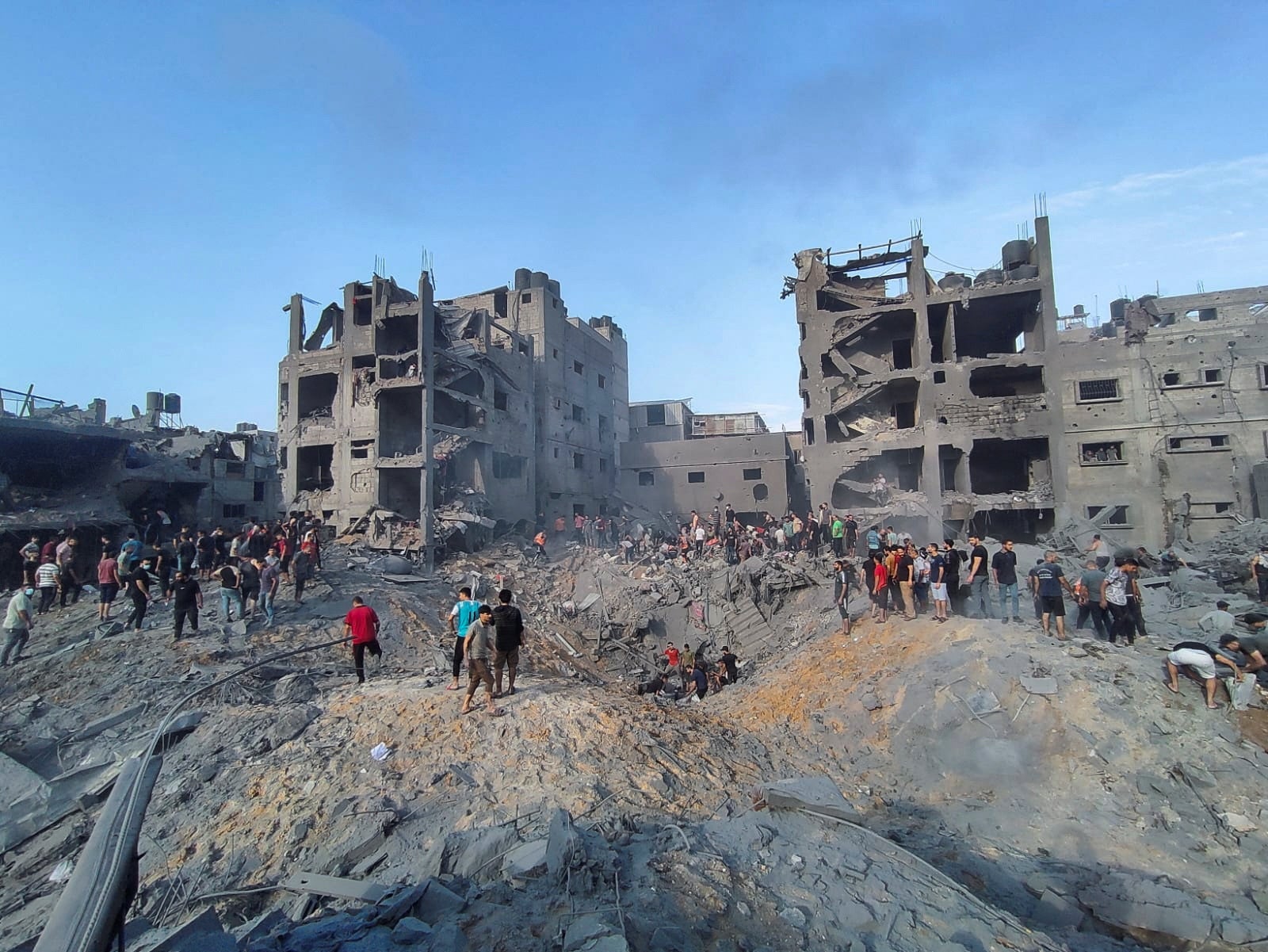
Airstrikes on Monday night outside the Indonesian Hospital in northern Gaza caused a power cut and doctors said they feared for the lives of 250 injured Palestinians being treated there as fuel runs low.
“Running out of fuel would mean no power and no power would mean the inevitable death of many patients,” Dr Moaeen Al-Masri said.
James Elder, a spokesperson for the UN children’s agency in Geneva, warned of the risk of infant deaths due to dehydration. Children in Gaza were getting sick from drinking salty water, he said.
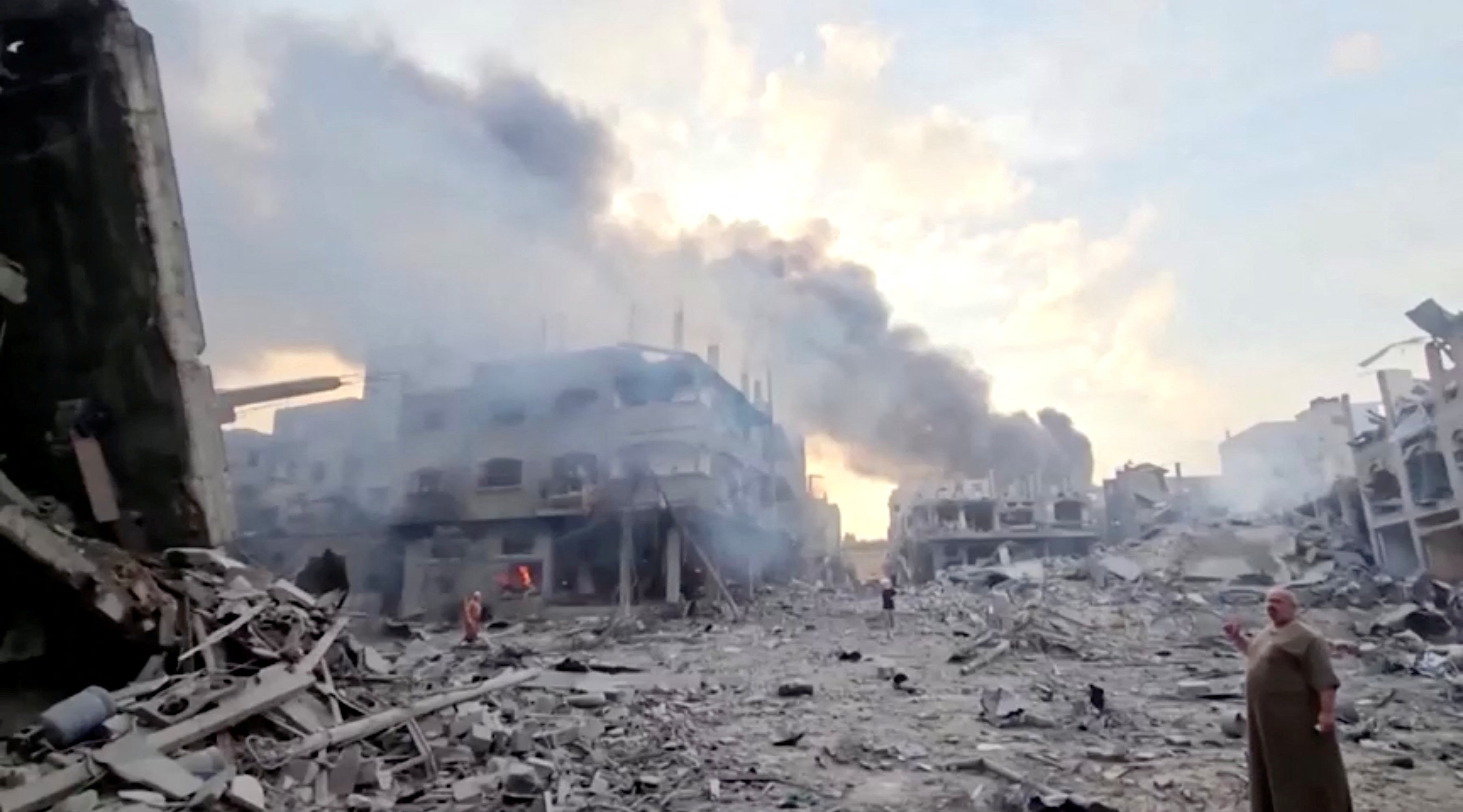
“Protection of civilians on both sides is paramount and must be respected at all times,” the UN chief said in a statement. “International humanitarian law establishes clear rules that cannot be ignored. It is not an a la carte menu and cannot be applied selectively.”
About 940 children are reported missing in Gaza, he said, with some thought to be stuck beneath the rubble of buildings flattened by Israeli airstrikes.
Significantly fewer humanitarian aid trucks than are needed have so far reached the besieged enclave, UN officials said. Aid trucks have been trickling into Gaza from Egypt over the past week via Rafah, the main crossing that does not border Israel.
Join our commenting forum
Join thought-provoking conversations, follow other Independent readers and see their replies
Comments